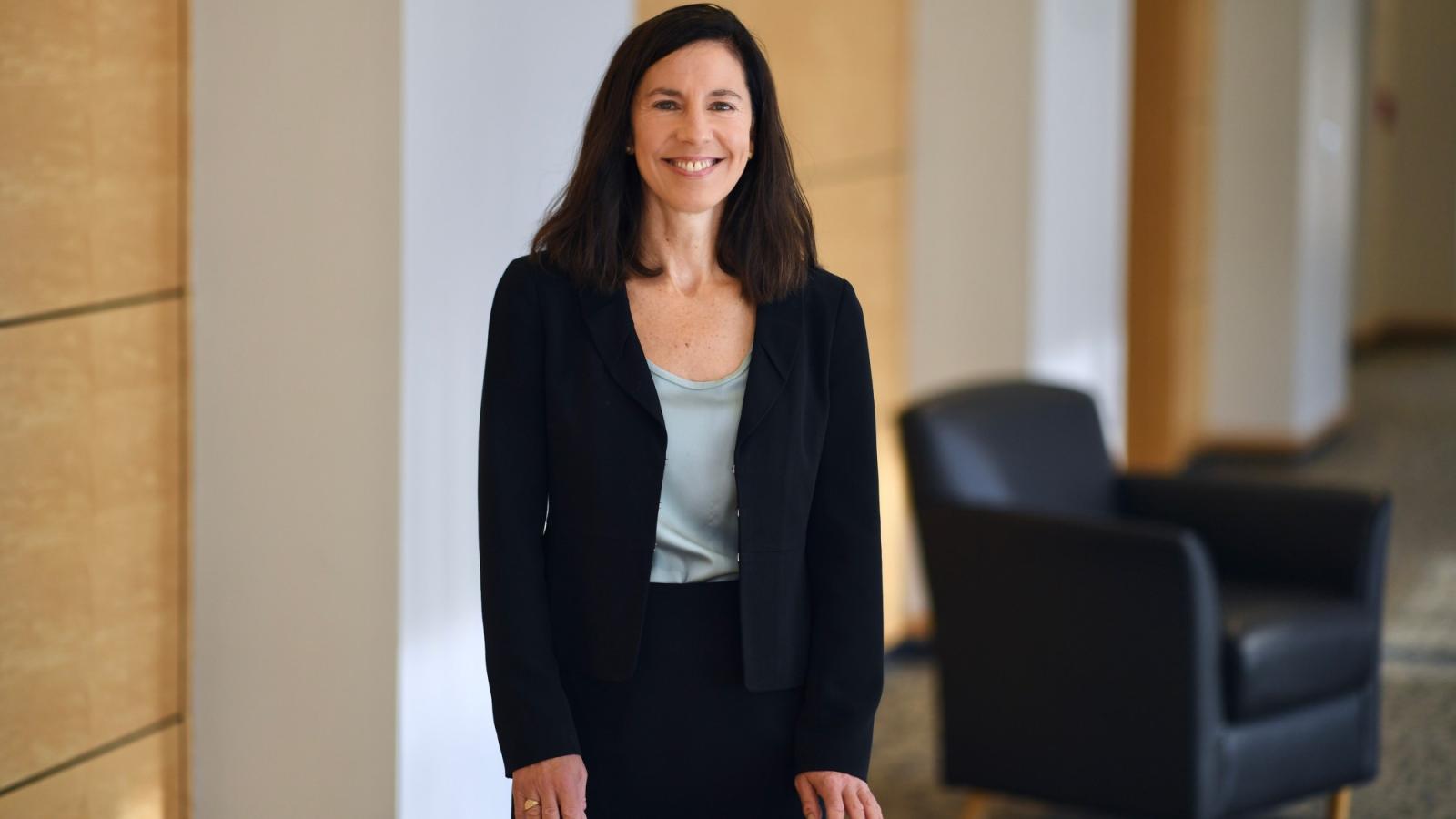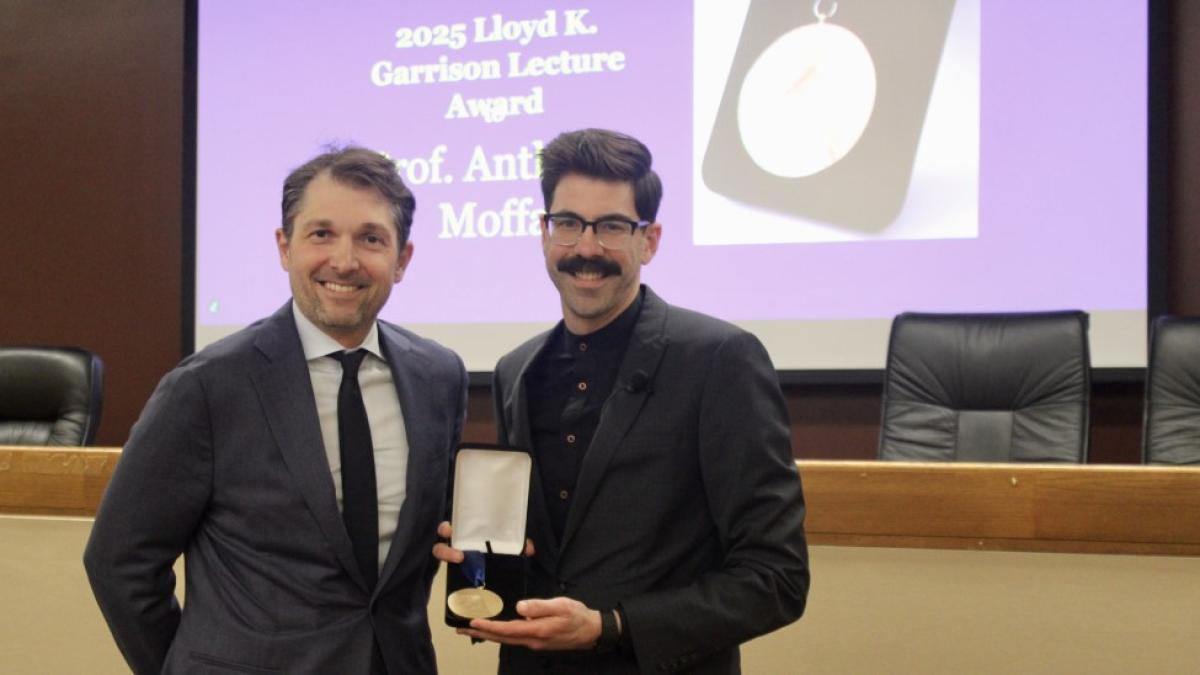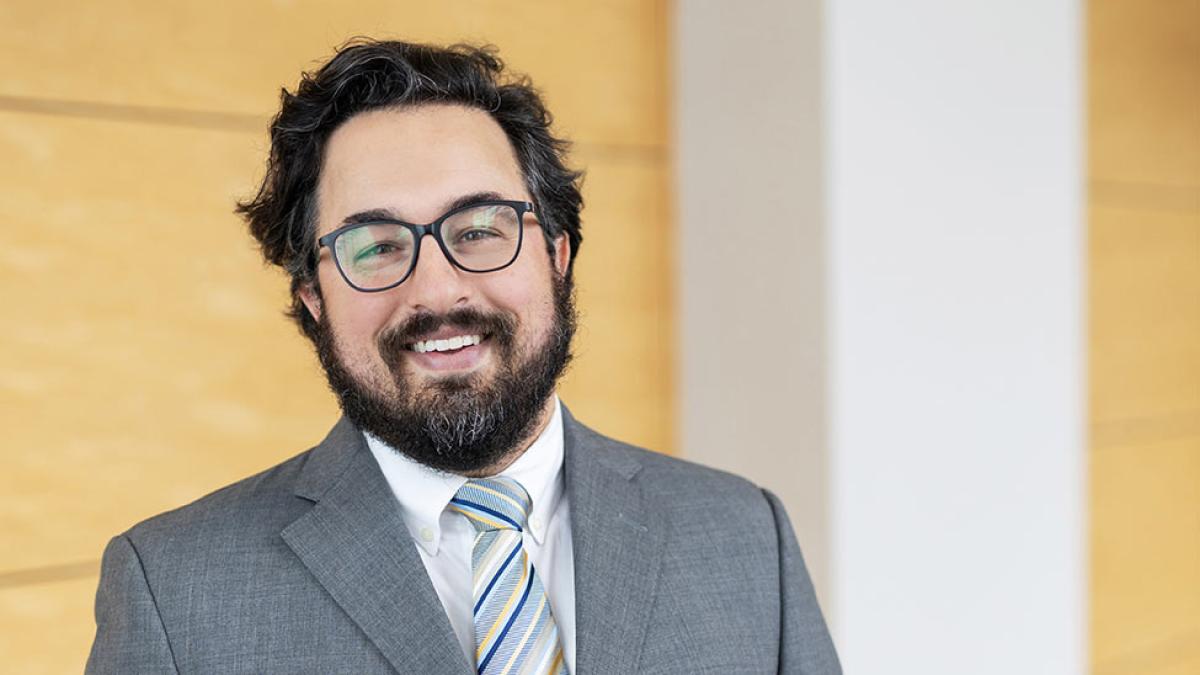Professor Anthony Moffa delivered the Annual Lloyd K. Garrison Lecture on Environmental Law on Thursday, April 3 on" Back to the Future for Climate Liability." The Lloyd K. Garrison Lecture on Environmental Law was established in memory of Lloyd K. Garrison in 1995. Professor Anthony Moffa currently serves as a Haub Visiting Scholar at the Elisabeth Haub School of Law at Pace University. He is also a Professor and Associate Dean for Innovation at University of Maine School of Law, where he oversees the Environmental and Oceans Law Certificate Program.
Faculty Focus: Professor Jessica Miles

Growing up in Vermont, Professor Jessica Miles’s family struggled financially. “From a young age, I was always very concerned with issues related to poverty and income inequality. It spurred my interest in government and politics. By the time I was a teenager, I was actively working on political campaigns.”
Although she had no lawyers in her family, Professor Miles had an image in her head of a public defender who helps people and that sparked her interest in pursuing a career as a lawyer. “During law school, I participated in a variety of internships. I found my passion was in working with domestic violence survivors and that is the work I sought out after law school. It is such an interesting area of law to me, it touches so many other fields in the law including family law, criminal law, and first amendment issues just to name a few.”
As a young lawyer, Professor Miles supplemented her income from her full-time job as a public interest lawyer by teaching for a standardized test preparation company at night. “I loved teaching. From that point on, it was in the back of my mind that ultimately, one day, maybe I could see myself in academia.” For twelve years, she worked with various nonprofit organizations, representing and empowering survivors of domestic violence, but as anyone who works in that field will tell you – it can be very difficult. “Eventually, I hit a bit of a wall emotionally. The work was very rewarding, helping survivors and their children to escape abuse, but it was also very emotionally draining. I wanted to continue to work on behalf of domestic violence survivors, but I also wanted to serve others with my law degree in a different way, so I started looking into the possibility of clinical teaching. As a clinical professor, I knew that I would still be able to do casework but would also be teaching the next generation of advocates.” Professor Miles subsequently accepted a position at Seton Hall Law School, where she worked with their family law clinic.
Then, in 2023, Professor Miles joined the Elisabeth Haub School of Law at Pace University as an Associate Professor of Law. “I was drawn to Haub Law, in part, because of the stellar reputation of the Pace Women’s Justice Center.” In addition to teaching a class on domestic violence law, Professor Miles is currently teaching torts, family law, and evidence. While domestic violence law is her passion, Professor Miles truly enjoys all of the classes she teaches and is happy to have added evidence to that list in the last few years. “No matter what you do in the law you will use the rules of evidence. Understanding the rules of evidence can be a game changer. If you know those rules better than your adversary, it can provide a significant advantage for your clients. I love empowering students to be the best advocates they can in this way.”
Professor Miles’s research work is focused on domestic violence. “For me, since one of the leading causes of poverty for women and children is domestic violence, I am hopeful that I am contributing to social justice in multiple ways when I am working to help survivors of domestic violence – previously through my practice and now through my research and teaching. To advocate for people, however I am doing it, it is very innate to me, and I find it to be very fulfilling work.” Recently, Professor Miles submitted a research article for publication focused on domestic violence and the emotion of disgust as it relates to judges. “The article addresses the role that the emotion of disgust plays in how judges react to domestic violence, and the impact that can have on civil protection order case outcomes.”
In teaching, Professor Miles has learned so much from her students. “Whether it’s Section 2 for torts or my Family Law or Domestic Violence Law students, we continually learn together. However, in order to do that, we all have to be willing to own our points of confusion and mistakes. People refer to “the practice of law” because it is just that – practice – and teaching and learning the law are practices as well. My students have great ideas and questions that I never thought of. We are all stronger and better able to learn once we feel comfortable being fallible and growing together.”
As far as advice for students, Professor Miles suggests that students participate in as many internships, externships, and clinical experiences as possible. “Any non-classroom preparation for legal practice that you are able to get during law school is something additional you can bring to the table in job interviews and it will be value added in your work as a lawyer.” She also noted the importance of taking care of your mental health and her appreciation of Haub Law’s emphasis on wellness initiatives. “As law students and as lawyers, you are often under significant stress, a priority needs to be put on taking care of yourself. Treat yourself as if you were your own most important client. This will allow you to help yourself and help others to the best of your ability.”


